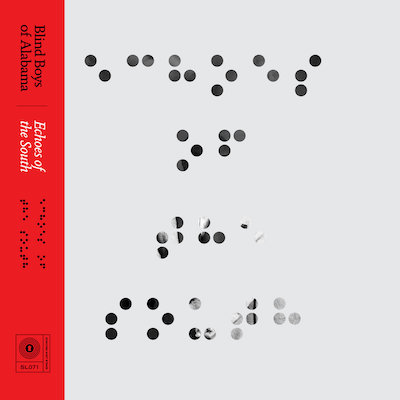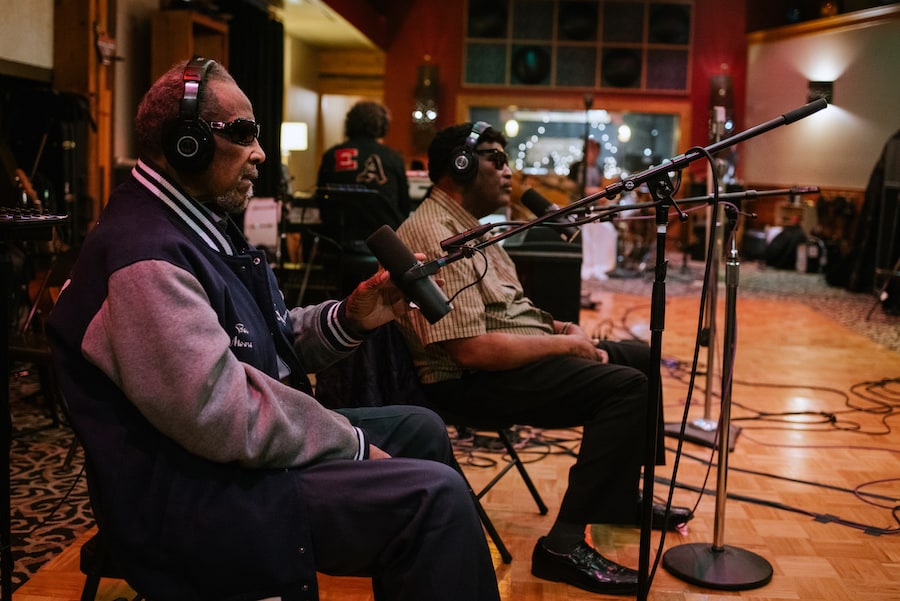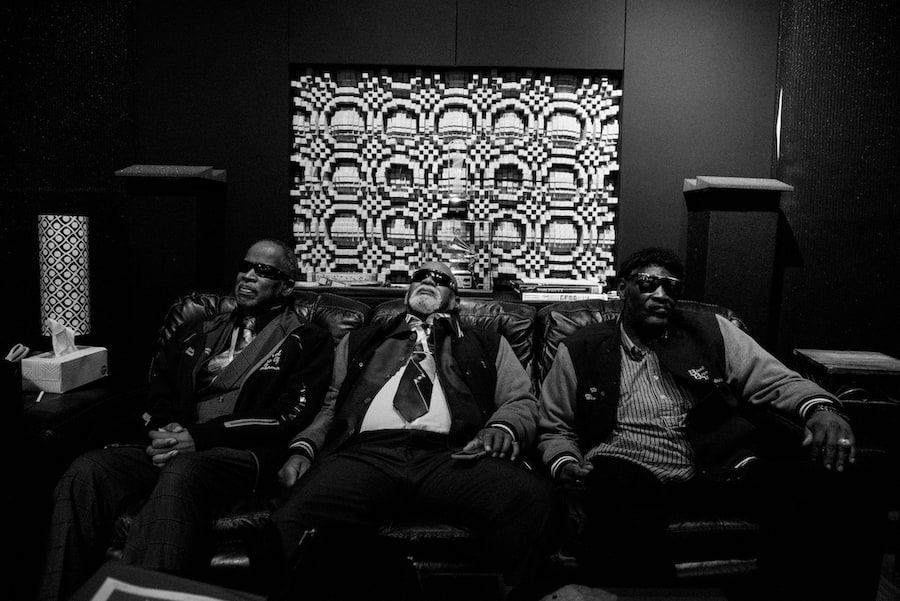Blind Boys Of Alabama
Echoes Of The South
Single Lock Records
8 September 2023

In a 1940s brochure for the Alabama radio station WSGN, one page was given over to promote their ‘Negro Programs’. These ‘programs’ mainly consisted of one music show called Echoes of the South. The noted Alabama historian Andre J. Millard told me: “Big stations like WSGN offered some programming for the Black audience, but it wasn’t seen as a market for the commercials that formed the station’s income. The large networks did have a segregationist policy, though it was basically a matter of money. The audience for Black music wasn’t big enough for regular programming; only the religious content had some crossover potential until radio stations realised the appeal of rock and R&B.”
Into this social setup, a gang of teens from the Alabama Institute for the Negro Deaf and Blind arrived at WSGN in June 1944. Broadcast from a studio at Birmingham’s Dixie Carlton Hotel, it was the first radio appearance of the Happy Land Jubilee Singers. Their name changed to Five Blind Boys of Alabama after noting the successful Five Blind Boys of Mississippi. This led to a rivalry that never entirely disappeared, even though the acts toured together. Both had sighted members early on for practical reasons, though generally, the performers have been visually impaired.
Blind Boys Of Alabama’s new album Echoes of the South honours the radio show that offered their first break. No original members survive, but the band’s gospel blueprint is intact despite numerous celebrity collaborations. The songs still offer a sense of chumminess with God rather than a fearful connection, ranging from butt-swinging rhythms to bone-deep weariness. Yes, there’s a suave elegance in the production, but gospel has long served for both entertainment and enlightenment.

Send It On Down makes for a grand intro, spun over a joyous stomp adorned with hand claps and gleeful piano. The bluesy bass-thumped Work Until My Days Are Done recalls Sam Cooke’s harmonic style, with versions of this number dating back to 1955. Despite its hopeful title, Friendship is a deeply reflective piece from the Lean On Me school of righteous bonding.
You Can’t Hurry God was likely written by Dorothy Love Coates in the 1950s for her band, The Original Gospel Harmonettes. Advising patience and faith, the song hums with anticipation and inspired Holland-Dozier-Holland to pen You Can’t Hurry Love. Falsetto blessings and a yearning chorus on Jesus You’ve Been Good to Me evoke a deity who fears nobody and loves everyone, but it’s the easy fellowship here that unites listeners and singers.
The Last Time echoes the broken world vibe that made the Boys’ cover of Tom Waits’s Way Down In The Hole such a spiritual bruiser (Waits asked for advance tapes of The Wire before agreeing to this version as its title theme. Weeks of silence followed. Waits finally admitted he didn’t know how to use the family’s VCR). Curtis Mayfield wrote Keep on Pushing for The Impressions, circa 1964, with its inspirational phrasing nabbed from gospel traditions. In this moody downtempo take, we might perceive calls for personal or even political upheaval.
Paul’s Prayer comes via the group’s tenor, Paul Beasley, who died in March 2023. Snaky grooves are uplifted by the hovering beauty of Beasley’s vocal pleas, ensuring his legacy will endure. Wide River to Cross has Lanois-like guitar shivers and downcast vocals, yet when sung by such loving souls, the refrain gives hope to tired travellers. Many would argue the blues carry equal tidings of the mystical despite the Devil’s dragging connection.
A fiery testimony bounces off a cleansing chorus during Nothing But Love. Written by Clarence Fountain, a Blind Boy who died in 2018, it’s among the album’s boldest proclamations of belief. Finally, Heaven Help Us All was a 1970s shout against war, prejudice and gun violence covered by Stevie Wonder and others and played straight here as soulful R&B, its smiling chorus takes flight to send an inclusive message across race and religion.
An emotive blend of song and oratory, Echoes of the South seeks the core of Divine-human relationships. No simplistic pleas for salvation; these are stories of how we might live when facing hardship or the loss of hope.

